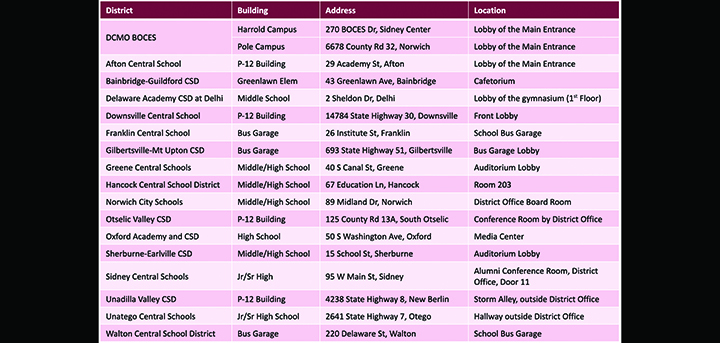County youth bureau, STOP-DWI laud ban on powdered alcohol
NORWICH – The Chenango County Youth Bureau and STOP-DWI program are weighing in on a piece of legislation that prohibits the sale of powdered or crystaline alcohol in the State of New York.
Gov. Andrew Cuomo signed the proposal into law this month making it illegal for retailers to peddle the substance known as “Palcohol,” a freeze-dried alcohol sold in small bags and intended to be mixed with water to create alcoholic drinks.
According to the governor, the substance is a “ public health disaster waiting to happen.”
“I am proud to sign this legislation that will keep powdered alcohol off the shelves and out of the wrong hands,” Cuomo said in a media release last week.
Signing the measure puts New York in the ranks of 20 other states that have banned Palcohol, but it’s the legislature’s proactive approach that deserves applause, said Kathy Clemens, dual Director of the Chenango County Youth Bureau and the county’s STOP-DWI program.
“The governor made the right choice,” Clemens said. “Powdered alcohol is still relatively new, therefore the safety factor wasn’t as good as it could be; and that made it too easily transportable at any kind of event.”







Comments